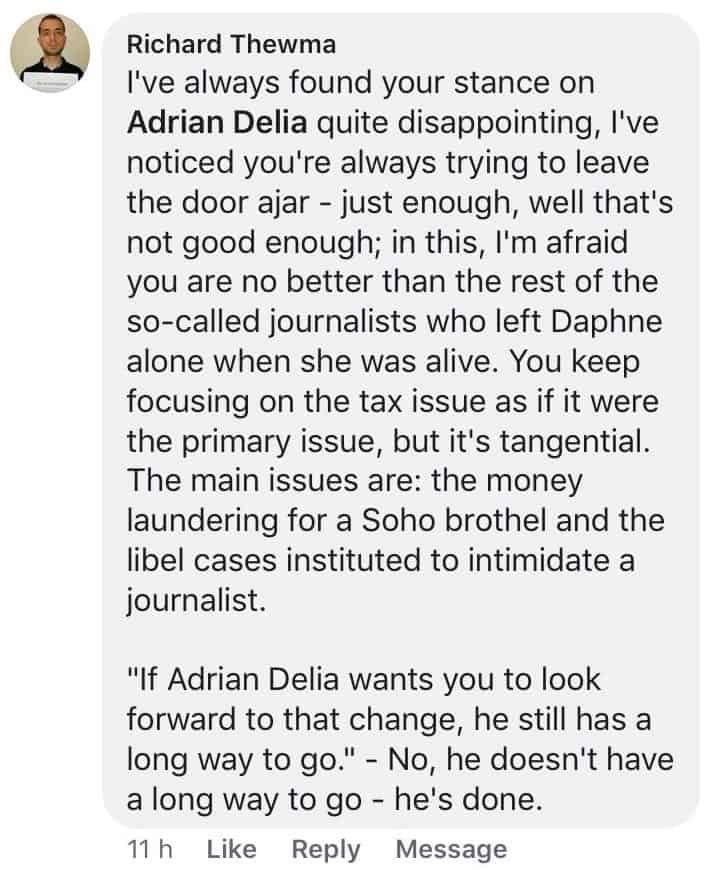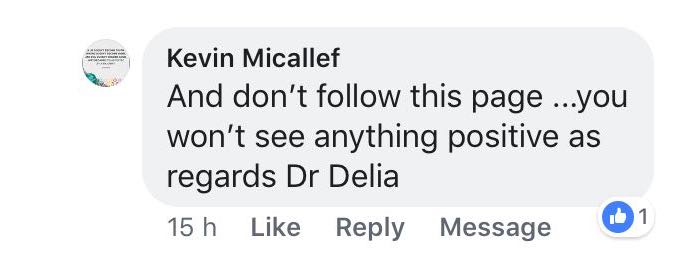The reaction to any blog post or article that is critical of the PN from a source of information that is habitually critical of Joseph Muscat’s government is as predictable as it is sad.
It’s not that an opinion that is expressed that is in some way controversial or challenging should not expect to be met by equally forceful disagreement. That’s fine.
If I think the line is not quite drawn on Adrian Delia’s ability to convince a majority of the electorate to prefer him over the incumbent prime minister, that analysis will remain a matter of opinion until such time as an election actually occurs and we all get our answers. Until then debate is necessary and desirable and after that a debate on the causes of whatever outcome can be expected.
What I have an issue with is the approach of some of those who react.
Let us start with the sort of reactions I understand and respect.
To start with my article of yesterday was itself a reaction to a report by David Lindsay of an interview he had with Adrian Delia. I disagree with David Lindsay’s conclusions but I respect the fact he reached them empirically after perusing documentation that has formed his view. He has also assumed responsibility for his conclusions.
I take a dim view of people who say David Lindsay wrote the way he did because his former boss now works for Adrian Delia or that the newspaper he works for is partly owned by relatives of Adrian Delia’s wife. David Lindsay stands by what he wrote. We can discuss the sufficiency of the facts he considers and the questions he could have asked and he did not. But I don’t doubt his sincere conviction and I cannot but respect his willingness to carry the responsibility for it.
I also understand and respect those who criticise my reaction, as this post on Facebook does, for my own conclusions. This writer says my conclusions are too timid and too kind with Adrian Delia and he says why.

Like what David Lindsay must feel when reading my article in reaction to his, reading this post in reaction to my article I feel I disagree my conclusions are wrong. But I agree they are subject to comment and criticism.
The point it becomes problematic is when people react like inquisitors assessing heresy. As far as I know supporting a political leader is not a religion. Therefore disagreeing is not some blasphemous anathema.
The general tone of the comments is that any critical view should simply not exist. ‘Shut up already’.





A variation on this is that the opinion must have ulterior motives.


Or that it is expressed under false pretences.

Why is any of this a problem?
Because it is obtuse, tribal, undemocratic and closes the door to debate and disagreement which is civil and keen on compromise and progress. Because it obliges political supporters to become religious faithful blinded to error they would otherwise perceive. Because it disrespects individuals’ capacity to discern from different opinions and choose what to agree with.
Because it is retrograde and inadequate for democratic life.
Because it recruits the fans but alienates those who could otherwise lend their support but reserve it for cogent reason rather than entrenchment and exclusion of any other.
Take, by way of conclusion, this piece of advice that could be given in a backwater by a curé answering a villager’s question on what to do if the Jehovah’s Witnesses knock on the door and sweet talk you into temptation away from the Holy Mother Church.

Do not listen. The sweet tongue of the devil wants to confuse minds.